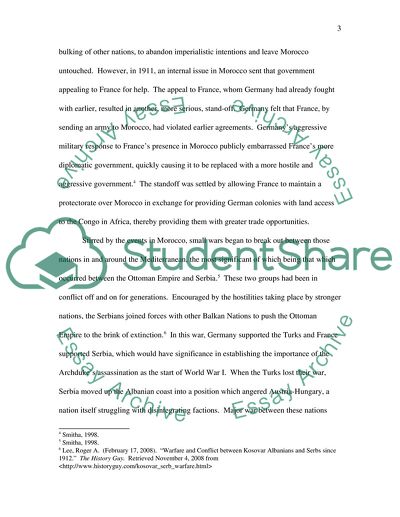Cite this document
(Cause of the First World War Essay Example | Topics and Well Written Essays - 1500 words, n.d.)
Cause of the First World War Essay Example | Topics and Well Written Essays - 1500 words. https://studentshare.org/history/1548900-was-the-system-of-alliances-between-european-powers-the-main-cause-of-the-first-world-war
Cause of the First World War Essay Example | Topics and Well Written Essays - 1500 words. https://studentshare.org/history/1548900-was-the-system-of-alliances-between-european-powers-the-main-cause-of-the-first-world-war
(Cause of the First World War Essay Example | Topics and Well Written Essays - 1500 Words)
Cause of the First World War Essay Example | Topics and Well Written Essays - 1500 Words. https://studentshare.org/history/1548900-was-the-system-of-alliances-between-european-powers-the-main-cause-of-the-first-world-war.
Cause of the First World War Essay Example | Topics and Well Written Essays - 1500 Words. https://studentshare.org/history/1548900-was-the-system-of-alliances-between-european-powers-the-main-cause-of-the-first-world-war.
“Cause of the First World War Essay Example | Topics and Well Written Essays - 1500 Words”. https://studentshare.org/history/1548900-was-the-system-of-alliances-between-european-powers-the-main-cause-of-the-first-world-war.


